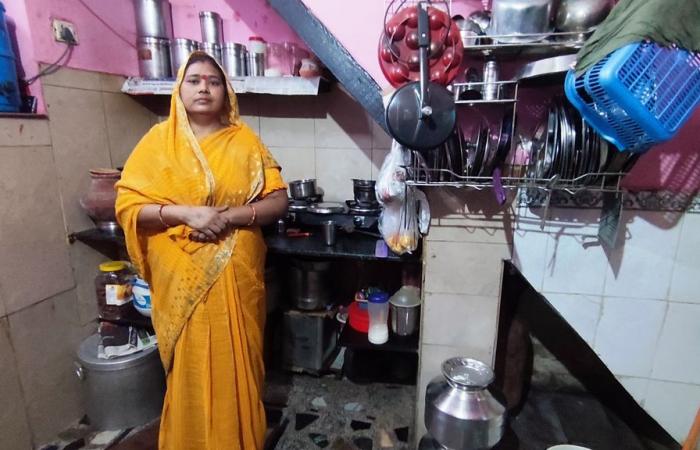NOS News•today, 09:47
In India (1.4 billion inhabitants), voters can still cast their votes until June 1 in the parliamentary elections that started on April 19. Prime Minister Modi is aiming for a third term in office. Under him, the country has grown into the fifth largest economy in the world. India is expected to reach the top three in the coming years, Modi and other members of the ruling party BJP emphasized in the election campaign.
But the economic growth rate is disputed. Critics also say that essential figures about the Indian economy are missing, causing tens of millions of people to miss out on social benefits – with all the consequences that entails.
The latter is clearly visible in the Lal Gumbad Basti slum in the south of the capital New Delhi. People there say they need food aid. To qualify, they need a food card, but they do not receive one. “India is moving forward, but only for the rich,” says resident Kaushalya. “There is no progress for the poor.”
Kaushalya earns barely 50 euros a month as a cleaner and her husband’s income is irregular. Her in-laws have a food card, but only for themselves. The fact that the family has now expanded with a daughter-in-law and two children makes it difficult. That’s why she applied for her own card three years ago, without success. “I’m being sent from pillar to post.”
Under India’s National Food Security Act, people with a special ration card receive 5 kilos of free grains such as rice and wheat flour every month. Currently that is 800 million people. But that number was determined based on the 2011 census.
The problem is that there are no current, reliable figures on the size of the population and how people are doing financially, says activist Anjali Bharadwaj of the Right to Food Campaign.
Old data, new missing
In 2021, the decennial census was postponed. This was due to the corona pandemic, but a new count was subsequently postponed indefinitely. Based on estimates, India’s population has grown so much that, according to Bharadwaj, at least 900 million people are entitled to food distribution. Because each state is allowed to issue a maximum number of cards, people like Kaushalya are floundering.
Bharadwaj’s research shows that in Delhi alone, 300,000 people are waiting for a ration card. “In many other states there is not even the option to apply for one because the quota has been reached.”
The government therefore assumes that no new poor people have been added since 2011. “In the Supreme Court, the government argued that the average income per capita has risen to such an extent that the number of people needing a ration card must logically have fallen,” says Bharadwaj, referring to a case from November 2022. She believes that’s a nonsense argument. “The judge himself also said that the average income says nothing about inequality or the number of poor people.”

The economic growth rate is also under fire. In April, a difference of opinion emerged between the International Monetary Fund and the Indian delegate to the IMF, Krishnamurthy Subramanian. It had given a growth forecast of 8 percent for India. The IMF publicly contradicted him and stuck with an expected growth of 6.5 percent. A former advisor to the Modi government had previously called the growth figure of more than 8 percent “puzzling”. He also said that the number of foreign investments in India has reached an all-time low.
In the 2019 elections, the growth figures presented by Modi’s government also came under fire.
‘Lack of political will’
Bharadwaj points to international reports such as the Oxfam inequality report and the Global Hunger Index to show how great the inequality between rich and poor is. “It is true that we have more and more billionaires in the global top 100. But at the same time there is unprecedented levels of unemployment since the corona pandemic and high inflation.” The fact that the government nevertheless does not want to expand the number of people who are entitled to food distribution is due to a lack of political will.
The results of the parliamentary elections are expected on June 4, three days after the polls close.
Interviews and photos by Raghavendra Verma.
Tags: Prime Minister Modi proud Indian economy progress poor
-







